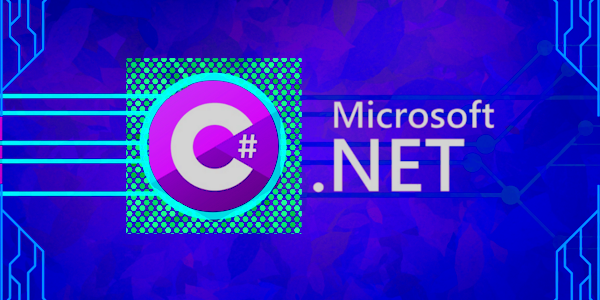Here’s a breakdown of what you’ll learn
1. THE .NET PLATFORM – Understanding what the .NET platform is and how it progressed from its release in the early 2000s until today is fundamental knowledge. Understanding why learning .NET is a great career choice and what you can build using the .NET platform.
2. C# INTRODUCTION – Learn the fundamentals of the C# programming language. Start by creating your first console application, learn about application startup mechanisms, read program arguments, and get used to data types and simple program flow structures, as well as working with variables of different kinds.
At the end of the module, you will feel confident building a working C# application from scratch.
3. OBJECT-ORIENTED PROGRAMMING – Object-oriented programming (OOP) is a programming language paradigm foundational to C# development.
Learning how to use classes from the .NET base class libraries, implementing custom classes, and learning about reference types, access modifiers, namespaces, and interfaces. Inheritance, polymorphism, and advanced variable scopes are the advanced topics of this module.
4. INTERMEDIATE C# PROGRAMMING – Independent lessons about various intermediate topics in C# development, such as additional keywords, structs, enumerations, switch expressions, and .NET runtime features such as garbage collection.
Understanding the difference between value types and reference types in .NET and handling exceptions are the advanced topics of this module.
5. C# ARRAYS & COLLECTIONS – Data structures are foundational for software development. Starting with simple arrays, ArrayLists, and more advanced collection types such as generic lists, queues, stacks, and dictionaries. The module focuses on providing basic knowledge of the most commonly used data structures.
6. ADVANCED C# – Learning how to create and work with class libraries and custom exception types.
Extension methods, named arguments, optional arguments, the params keyword, and generic types are all advanced topics that help write maintainable and type-safe code. Nullable reference types and record types are advanced topics that simplify development and improve type safety.
7. LINQ FUNDAMENTALS – Language Integrated Query (LINQ) is a powerful .NET API to filter, order, transform, and group data when dealing with collection types. It can be used to handle data in memory and retrieve data from other sources, such as files and databases.
8. AUTOMATED TESTING – Test automation helps improve the maintainability of the software by reducing the risks of bugs. It also acts as code documentation and helps write independent and coherent classes. Learning about what test frameworks are available and choosing a test framework to implement automated test cases.

